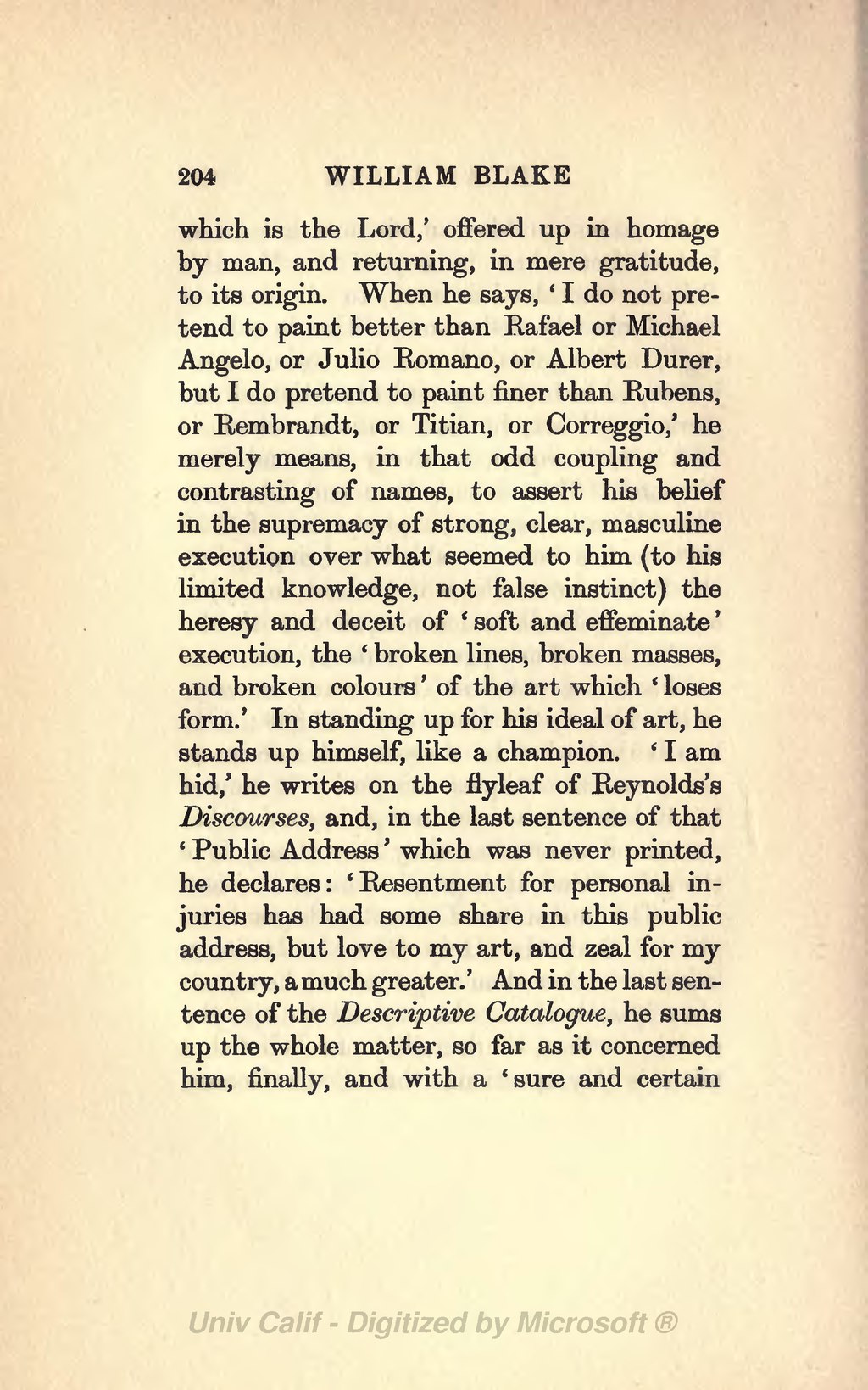which is the Lord,' offered up in homage by man, and returning, in mere gratitude, to its origin. When he says, 'I do not pretend to paint better than Rafael or Michael Angelo, or Julio Romano, or Albert Durer, but I do pretend to paint finer than Rubens, or Rembrandt, or Titian, or Correggio,' he merely means, in that odd coupling and contrasting of names, to assert his belief in the supremacy of strong, clear, masculine execution over what seemed to him (to his limited knowledge, not false instinct) the heresy and deceit of 'soft and effeminate' execution, the 'broken lines, broken masses, and broken colours' of the art which 'loses form.' In standing up for his ideal of art, he stands up himself, like a champion. 'I am hid,' he writes on the flyleaf of Reynolds's Discourses, and, in the last sentence of that 'Public Address' which was never printed, he declares: 'Resentment for personal injuries has had some share in this public address, but love to my art, and zeal for my country, a much greater.' And in the last sentence of the Descriptive Catalogue, he sums up the whole matter, so far as it concerned him, finally, and with a 'sure and certain
